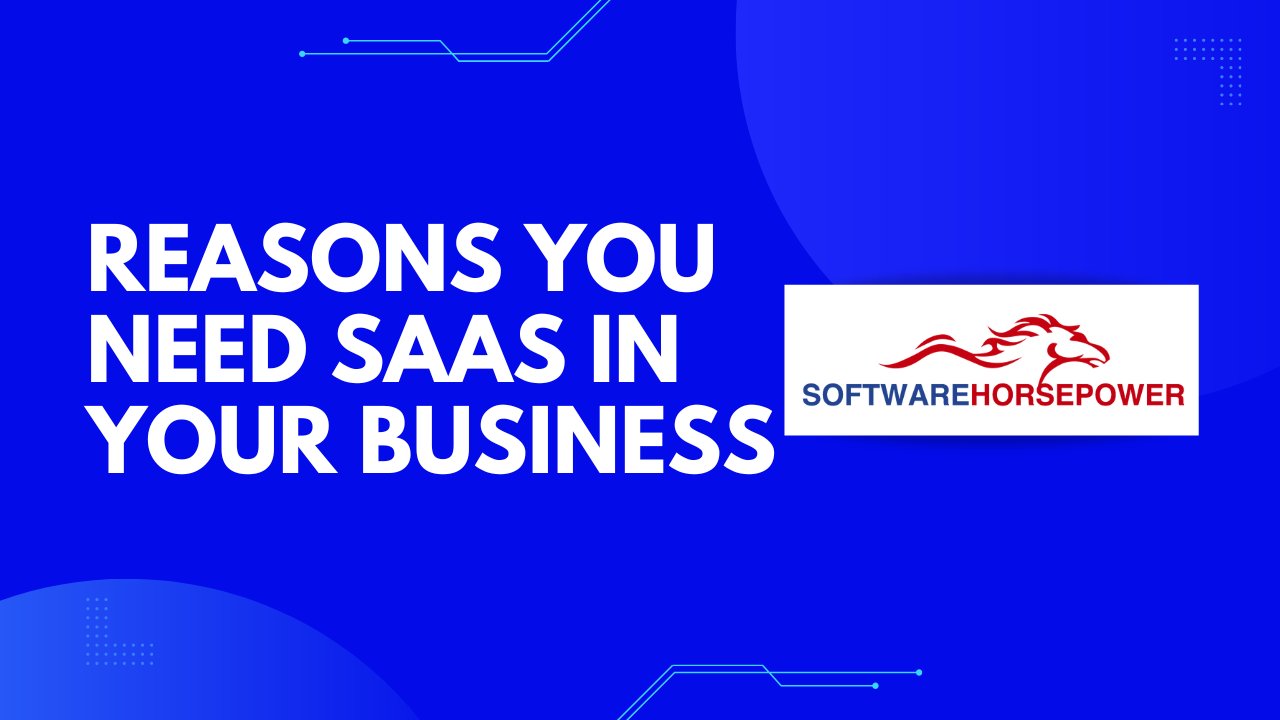
SaaS can save you money
When implemented correctly, SaaS offers significant savings when compared to traditional on-premise software. First and foremost, customers don’t need to pay license fees since SaaS solutions are typically priced on a recurring subscription basis. Additionally, customers don’t n0eed to pay for the server hardware and infrastructure needed to run the application. And because SaaS vendors usually provide centralized maintenance and support, customers don’t need to staff teams of technology experts to keep the software up and running. All of these cost savings can be reinvested in other areas to help businesses improve their operations. Moreover, customers only pay for what they need. This allows businesses to find just the right SaaS implementation to meet their needs, while avoiding the expense of procuring and maintaining too many or too few resources. And with the growing number of SaaS solutions available, businesses can often find multiple options to fit their budget.
SaaS is scalable:-
One of the great things about SaaS is that businesses can easily scale up or down their usage of the software as needed. This helps them meet the changes in demand and usage patterns from their employees and customers. SaaS vendors typically have a well-defined pricing model, with pricing tiers based on the features and functionality needed by customers. This means customers can adjust their usage up or down to match their business needs and budget. Additionally, SaaS allows businesses to quickly acquire new software and technologies when needed, without needing to devote the budget and resources to implement traditional solutions. This can help businesses innovate faster and capitalize on market opportunities. And because SaaS enables businesses to instantly scale up or down their usage, they can avoid spending too much or too little on software resources.
SaaS is accessible from anywhere:-
Another great benefit of SaaS is its ability to offer anytime, anywhere access to the software. With SaaS, customers don’t need to worry about losing data or access to the application if the device they use to access the software fails. All they need is an Internet connection and they can keep working. This can be especially useful for companies whose employees are located in different areas or regularly travel for business. Moreover, with SaaS, customers don’t need to worry about taking the time and resources to set up traditional software programs on every computer. Instead, customers can access the software from any device with an Internet connection, which increases the flexibility of the application. This can give businesses with remote employees the freedom to work from anywhere.
SaaS is secure:-
Data security is a major concern for businesses, especially considering the growing number of cyber attacks and data breaches. SaaS vendors understand this and implement robust security measures to protect customer data. Most SaaS providers use multi-factor authentication and enforce data access control to make sure only authorized users can access the software. Additionally, many SaaS vendors use encryption technologies and monitoring services to prevent unauthorized access to data and networks. And because SaaS customers don’t need to worry about setting up their own security protocols, they can maximize the security of the software with fewer resources.
SaaS is always up-to-date:-
One of the best benefits of SaaS is that businesses don’t need to take the time and resources to install and maintain software updates. SaaS vendors often provide automatic updates to the software, so customers don’t need to worry about manual processes or safety risks. This can help businesses stay current with the latest features and functions of the software, as well as protect them from known security vulnerabilities. Moreover, with SaaS, upgrades can quickly be implemented and rolled out to users, making it much faster and easier to stay up-to-date with the latest version of the software. This can help businesses reduce their exposure to potential security risks, minimize update-related disruptions, and save time and money.
SaaS can increase collaboration:-
Another great benefit of SaaS is that it makes it easy for multiple employees to collaborate on projects. Since all users can access the software remotely, teams can communicate, share documents, and sync up their work in real-time. This makes it easy to keep projects coordinated and on track while boosting productivity and creativity. Also, many SaaS-based applications and integrations are designed to help teams visually share tasks and progress, making it easier for managers to check in on progress and offer feedback to ensure nothing falls through the cracks. This can save a lot of time and effort when compared to traditional on-premise tools and processes for project management.
SaaS facilitates remote working:-
The growing trend of remote working is creating a major need for software and tools that can enable employees to work from anywhere. And SaaS fits the bill. Since most SaaS-based applications are designed to be accessed remotely, they are an ideal solution for companies looking to allow their employees to collaborate, communicate, and get work done from anywhere. Furthermore, many SaaS-based applications and tools offer features such as task tracking, reports, and analytics to give remote workers the visibility and control needed to stay on-task and keep the team on track. This can be especially beneficial for companies with a remote workforce, allowing them to raise their productivity to the next level.
SaaS is eco-friendly:-
SaaS is not only more efficient than traditional on-premise software, but it’s also more eco-friendly. Since SaaS vendors maintain and upgrade the application for customers, customers don’t need to use as much electricity to keep the software running. And with SaaS, businesses can reduce their paper use since they don’t need to print and store physical documents.
Software Reseller India, Software Distribution Platform, CRM Provider, best CRM software reseller in India


